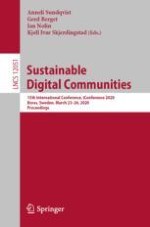2020 | OriginalPaper | Buchkapitel
AI Models and Their Worlds: Investigating Data-Driven, AI/ML Ecosystems Through a Work Practices Lens
verfasst von : Christine T. Wolf
Erschienen in: Sustainable Digital Communities
Aktivieren Sie unsere intelligente Suche, um passende Fachinhalte oder Patente zu finden.
Wählen Sie Textabschnitte aus um mit Künstlicher Intelligenz passenden Patente zu finden. powered by
Markieren Sie Textabschnitte, um KI-gestützt weitere passende Inhalte zu finden. powered by
